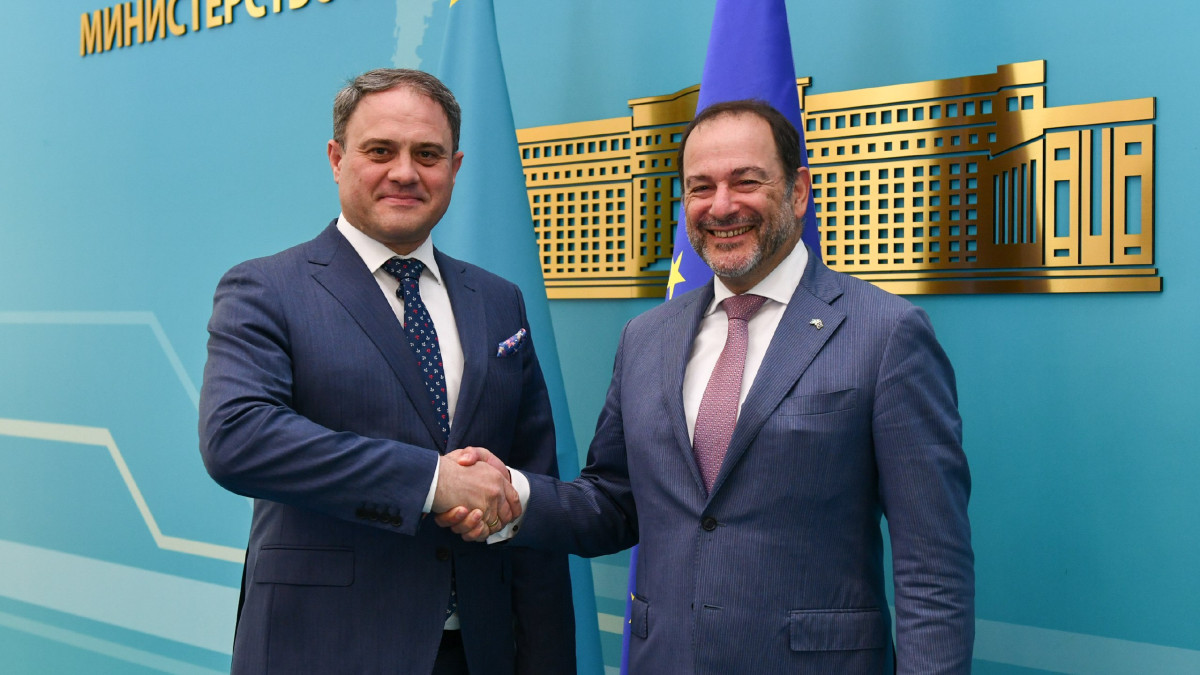
Kazakhstan and EU discuss practical steps to strengthen partnership

EL.KZ Информационно-познавательный портал
Deputy Minister of Foreign Affairs of Kazakhstan Roman Vassilenko and Luc Devigne, Deputy Managing Director for Russia, Eastern Partnership, Central Asia and OSCE of the European External Action Service chaired the 20th meeting of “The Republic of Kazakhstan – European Union” Cooperation Committee in political configuration. Representatives of Kazakh ministries and agencies, various directorates of the European Commission, as well as representatives of the diplomatic corps of EU member states accredited in Kazakhstan attended the event, El.kz cites MFA.
The main focus of the discussion was on further strengthening the dialogue in all priority areas, with a particular emphasis on the practical implementation of the Enhanced Partnership and Cooperation Agreement (EPCA) between Kazakhstan and the EU and its member states, covering 29 areas.
The parties discussed cooperation in the political, trade and economic spheres, the rule of law and human rights, as well as interaction in transport, energy, education and science, environmental protection and combating climate change. In addition, plans were outlined for holding official consultations on facilitation of the visa regime for the citizens of Kazakhstan, in accordance with the arrangements announced following the May 15 meeting of Deputy Prime Minister – Minister of Foreign Affairs of Kazakhstan Murat Nurtleu with the European Commissioner Ylva Johansson. The parties also discussed practical implementation of the EU-Kazakhstan Cooperation Facility Financing Agreement, signed during the Second EU-CA Economic Forum in Almaty on May 19, that provides 9 million euros for implementation of the projects in area of rule of law and sustainable economic growth.
Discussing the connectivity of the EU and Kazakhstan, including within the framework of the EU Global Gateway strategy, the parties noted the importance of developing and diversifying transit routes, including the Trans-Caspian International Transport Route (TITR), and its further connectivity with the EU Trans-European Transport Network (TEN-T). In this regard, the relevance of the EBRD Study on Sustainable Transport connections between Europe and Central Asia, presented on 19 May. The study identified “the Central Trans-Caspian Network, traversing through Southern Kazakhstan is identified as the most sustainable option, allowing for further transport network and regional development by taking a two-layer catchment area approach that spans the territory of all five Central Asian countries and covering most of the major population and production centres of the region”.
Special attention was paid to a wide range of interregional cooperation within the framework of “Central Asia – European Union” format. The progress of regional projects in the fields of education, water resources, environment, security and transboundary cooperation was discussed.
Overall, the regular meeting of the Kazakhstan-EU Cooperation Committee facilitated a detailed exchange of views and outlined specific steps for further implementation the EPCA and to deepen the whole range of mutually beneficial cooperation.
For reference: The European Union is Kazakhstan's main trade and investment partner, accounting for more than 30% of Kazakhstan's foreign trade and foreign investments.

